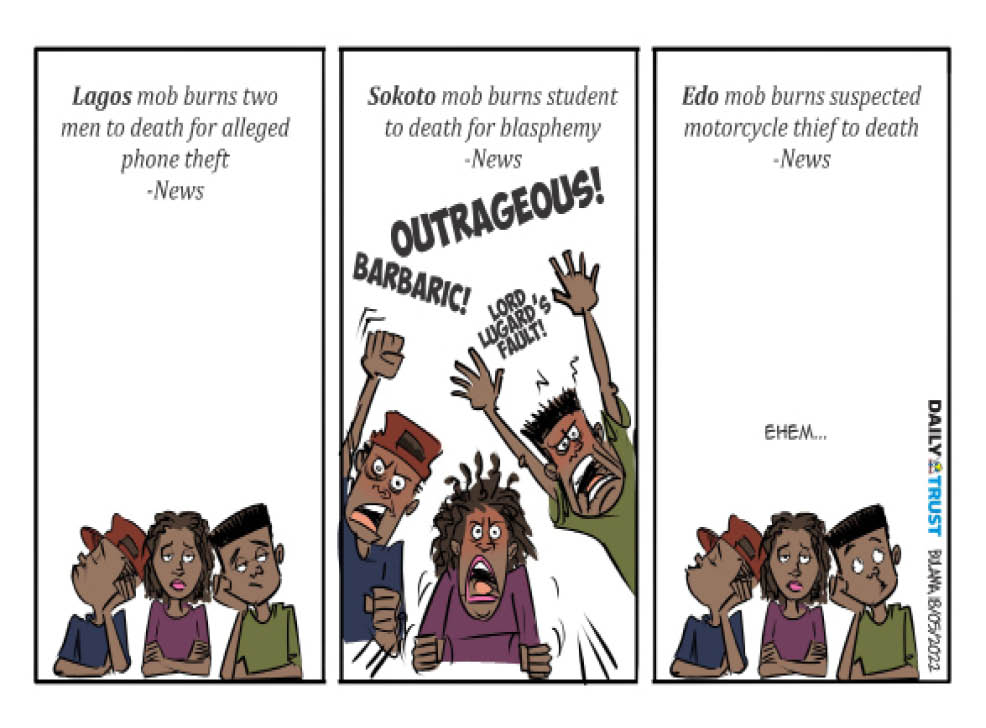FG, ASUU face off: Need for peaceful settlement
The protracted industrial dispute between the government and the union of university lecturers can be described as a class dispute reflecting a conflict of interests. To ASUU, the bone of contention has been the 2009 FG-ASUU agreement yet to be fully implemented by the government. FG to Facebook, others: Bar IPOB from hate posts Gunmen […]

The protracted industrial dispute between the government and the union of university lecturers can be described as a class dispute reflecting a conflict of interests.
To ASUU, the bone of contention has been the 2009 FG-ASUU agreement yet to be fully implemented by the government.
This is the concept of revitalisation of the ivory towers to the tune of 1.3 trillion agreed upon in 2013 to be released over a period of six years.
This process is in line with the masterplan of protecting the interests of the university workers as well as enhancement and upgrading of the standard of our universities to an enviable level with a view to placing the system on academic pedestal of competitive advantage globally.
The government, on the other hand, as the owner of these universities, has reasons to protect the interests of all and sundry beyond education sector as it appears unreasonable to jump into conclusion that a landlord will make a deliberate move towards demolition of structures constructed with his hard-earned resources.
Conflict is inevitable but a dysfunctional conflict is destructive. Conflicts should provide a medium for better understanding of the parties involved in the dispute and not otherwise.
Effects of ASUU strike has assumed both positive and negative dimensions. In terms of its positive effects, if the revitalisation fund is adequately released, it will go a long way to facilitate and improve infrastructure covering adequate equipment of university libraries, massive construction of hostels, provision of internet facilities to enhance teaching and learning among others. Its negative impacts found expression in the disruptions of academic programmes as exemplified in the following years; 1999, 2001,2002, 2009,2010 and 2013 till date.
The strike has impacted negatively on the students; subjecting them to abysmal level of immoral and criminal acts.
Nigerian Peace Corps (NPC), as a mega voice for peace building and conflict resolution hereby calls on the major actors which include the government, lecturers as well as the National Association of Nigerian students NANS, parents and guardians involved in the industrial dispute to embrace dialogue as an antidote and the only panacea to facilitate peaceful settlement between the parties.
If truly the 2009 FG-ASUU agreement has been the major source of the lingering disputes, it has also become clear that incessant strikes as highlighted above are incapable of resolving the conflict.
The agreement reached with ASUU requires an urgent review with a view to streamlining it with the present economic realities as we are not oblivious of the fact that government has narrowly and strategically pulled the country out of economic recession. This singular effort of the Buhari-led administration deserves accolades and general applaud.
Nigerian Peace Corps, therefore, advocates a collaborative effort – joint problem-solving method to address the issue and to save our nascent democracy from collapse.
We appeal to every stakeholder to maintain and sustain the status quo of peace and tranquility in order to allow the government of the day to concentrate efforts on tackling the monstrous challenge of insecurity bedevilling the nation.
In conclusion, while NPC implores the government to accelerate the process of a critical reviewal of the 2009 agreement with the union and categorising it into three stages of immediate, medium and long term demands requiring an urgent attention, the corps kicks against any act capable of creating crises, breakdown of law and order or any ignominious action that could tarnish the good image of the present administration.
Prof. Dickson Akoh, National Commandant, Peace Corps of Nigeria
